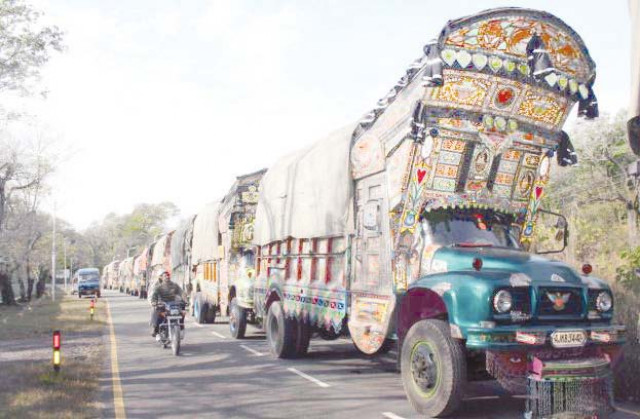Pakistan-India trade breakthrough
Granting MFN status to India may open up a period of peace between the traditional enemies.

Pakistan-India trade breakthrough
The opposition in parliament has complained that the decision of opening up trade with India was not taken with the approval of parliament. As per the constitution both in India and Pakistan, only the annual budget is put before the parliament for scrutiny and criticism and voting. Even now, the members can present a motion for the discussion of the MFN status, but unless the opposition has the required numbers in the house, they can hardly do anything. The stance taken by the PML-N is even stranger because its leader Nawaz Sharif has recently expressed enthusiasm for improving relations with India. Outside parliament, there are other offended voices too.
Many other voices are being heard over the media saying the same sort of incongruous things, but the truth is that human memory remembers only one truth: when there is trade there is no war, and vice versa. The world, including Pakistan’s all-weather friend China, has welcomed the inauguration of free trade between India and Pakistan. The world has welcomed the development being aware of the India-Pakistan trade imbalance. Those who lean on this argument project statistics from a period where trade was not liberalised. Looking at Sri Lanka-India figures after the two went into free trade relations would have been more relevant.
One should also recall that Pakistan is ready to allow India passage of goods to Afghanistan through a transit route and that Pakistan is already preparing a ‘negative list’ of tradable goods. On the other side of India, Bangladesh too is moving from a semi-free trade regime with India to a full-dress Safta arrangement. According to estimates, the bilateral trade which grew tenfold from 2000 to 2010, will now touch the figure of $10 billion in two years. There is no doubt that the two sides will have to thrash out the problems faced by all free-trading states and the foremost among these would be India’s non-trade barriers. All the smuggling that goes on and the extra money Pakistanis have to pay for Indian goods because of the UAE route will be removed.
The Saarc Chamber of Commerce & Industry in its 2011 session in Sri Lanka discussed the issues of South Asian connectivity, which is the next step India and Pakistan need to take after they have normalised bilateral trade. It was observed that due to poor connectivity, South Asian countries had failed to tap into 72 per cent of the trade potential of $65 billion available in 2011. The issues of connectivity in the region should not be confined to trade, but need to “reach the realms of not only railway and road corridors but also to inland waterway transport and aviation”.
Another name for avoidance of war is codependency. Any pledge of avoidance of war given in a treaty is not as reliable as the ground reality of benefit derived by neighbouring states from each other. In the coming days, one very important factor of codependency is going to be connected with the Iran-Pakistan gas pipeline project, which India, despite its consistent hesitation, will be in a better position to exploit than Pakistan because of its much larger economy. The transit route Pakistan is now envisaging for India through its territory will be historically transformational for Pakistan itself — though not so much for India — and will change its political stance forever in favour of the vision it has subscribed to under Saarc.
Published in The Express Tribune, November 6th, 2011.














COMMENTS
Comments are moderated and generally will be posted if they are on-topic and not abusive.
For more information, please see our Comments FAQ